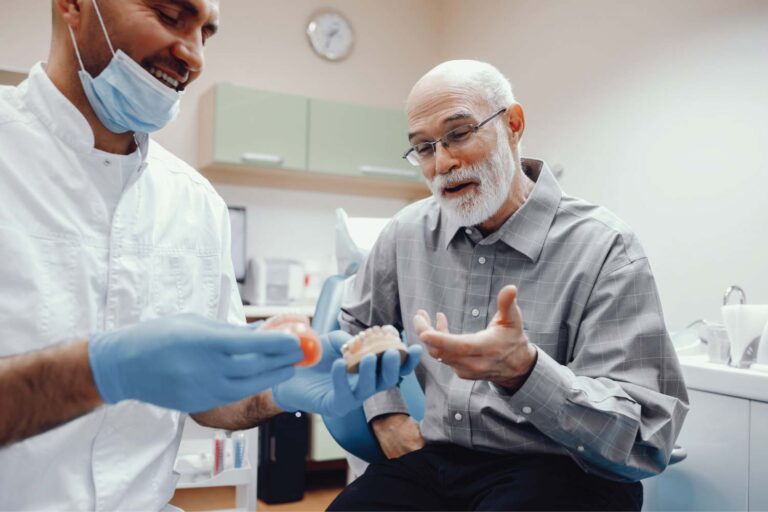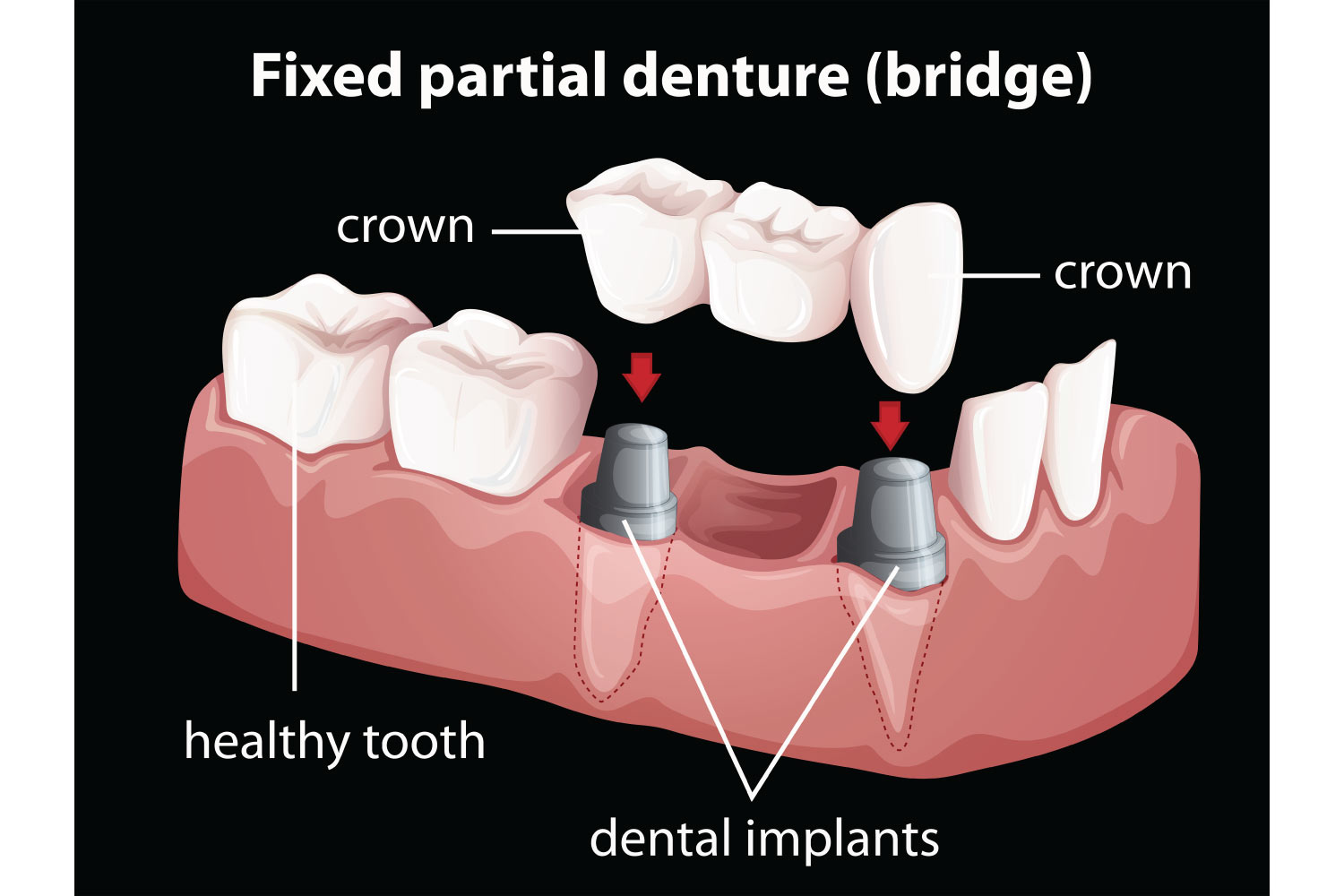Dentures are removable false teeth made of acrylic (plastic), nylon or metal. They fit snugly over the gums to replace missing teeth and eliminate potential problems caused by gaps.
Gaps left by missing teeth can cause problems with eating and speech, and teeth either side of the gap may grow into the space at an angle.

Dentures offer an effective solution for closing gaps resulting from missing teeth. By securing to neighboring teeth, dentures not only restore the functionality but also enhance the aesthetic appeal of your smile.


Our Approach To Treating Teeth Encompasses A Range Of Options.
Trustindex verifies that the original source of the review is Google. Changed my life great staffTrustindex verifies that the original source of the review is Google. Sonya was the best. Very nice and informing. Executed her position very well and made sure to give tips along with the cleaningTrustindex verifies that the original source of the review is Google. I love Waukegan family dental I have had nothing but wonderful experiences here every one is great and they make you feel so comfortable I had 11 teeth pulled and immediate denture all in one day and I left feeling no pain THANK YOU WAUKEGAN FAMILY DENTAL❤️Trustindex verifies that the original source of the review is Google. I was referred here by a friend. At the time I was in a lot of pain. I was played by other dentist office trying to make me wait months and months for an appointment and scared. From care I received in the past. I called and they got me in the same day. And took care of my needs quickly. I was terrified but they all were very reassuring and talked me through everything. They made me feel very comfortable and made sure I was aware of everything going on. Also they showed respect. And didn’t embarrass me of my situation or put me down for any issues I have. They are very understanding and willing to work with you.they are very gentle with adults and children and even try to help take your mind off of the work I wish I would have known about this place sooner I would have never wasted my time at other places. I switched my whole family over we all love it here. I have referred all of my friends here as well and I hear good reports back to those who have visit. Thank you for being a great dentist office the staff is very welcoming.Trustindex verifies that the original source of the review is Google. Highly recommend this office. Dr. Nishant did my deep cleaning and also performed my wisdom teeth extraction. He is very kind highly skilled doctor. Through out my visit he make sure I am comfortable and procedure he performed was smooth and painfree .Google rating score: 4.5 of 5, based on 122 reviews
Dentures are removable dental appliances designed to replace missing teeth and surrounding tissues. They come in two main types: complete dentures for those with total tooth loss and partial dentures for individuals with some remaining natural teeth.
Dentures are recommended when a person experiences significant tooth loss due to factors such as decay, gum disease, injury or other dental issues. They help restore oral function, improve aesthetics, and prevent further oral health problems.
Adjusting to dentures varies from person to person. It may take a few weeks to become accustomed to the feel of dentures in the mouth and to regain normal functions like chewing and speaking.
Yes, with time and practice, most individuals can eat a variety of foods with dentures. It’s recommended to start with soft foods and gradually reintroduce harder items as you become more accustomed to your dentures.
The lifespan of dentures varies depending on factors such as oral hygiene, wear and tear, and changes in the oral tissues. On average, dentures may last 5 to 7 years, but they may need adjustments or replacement over time.